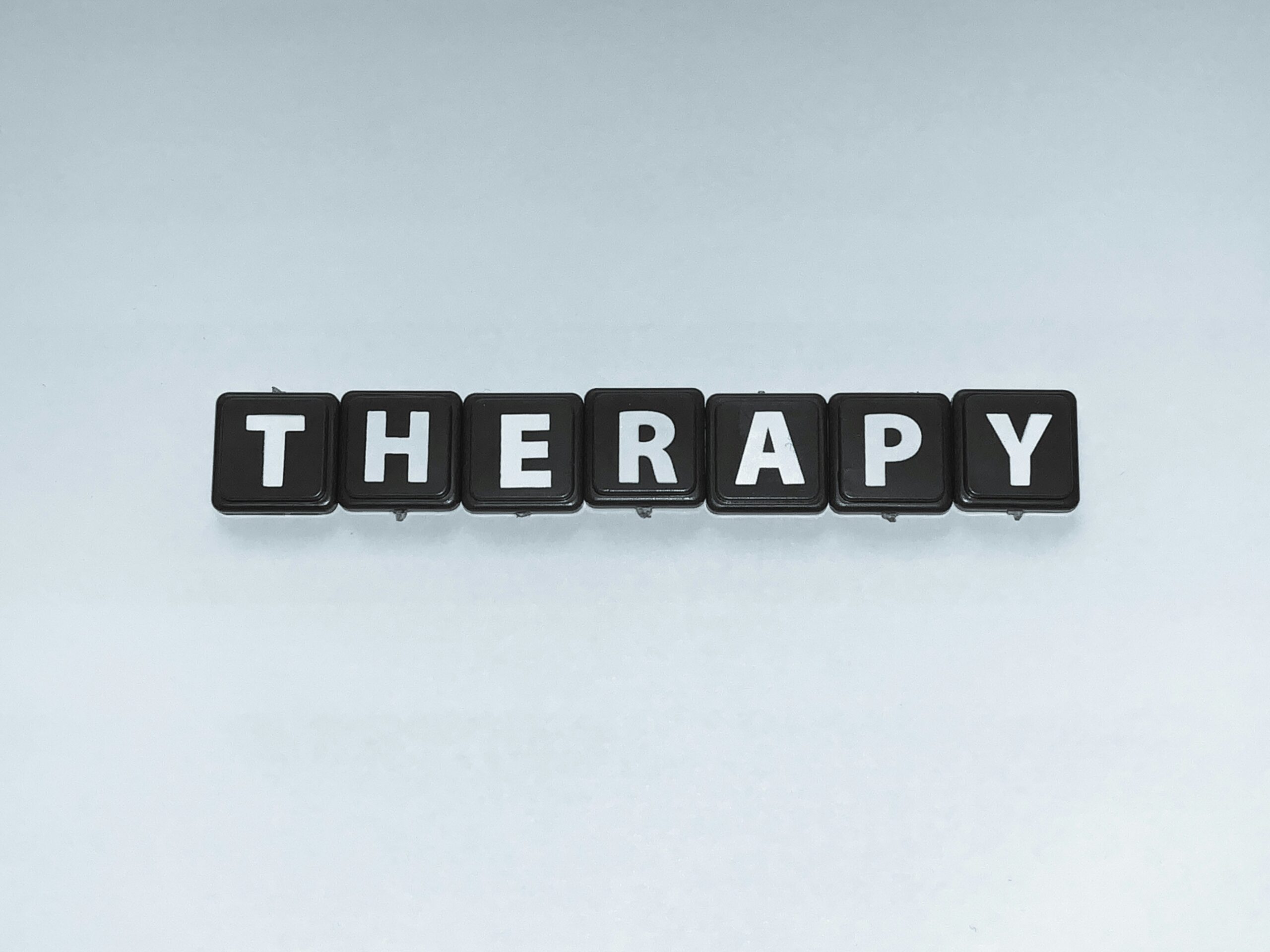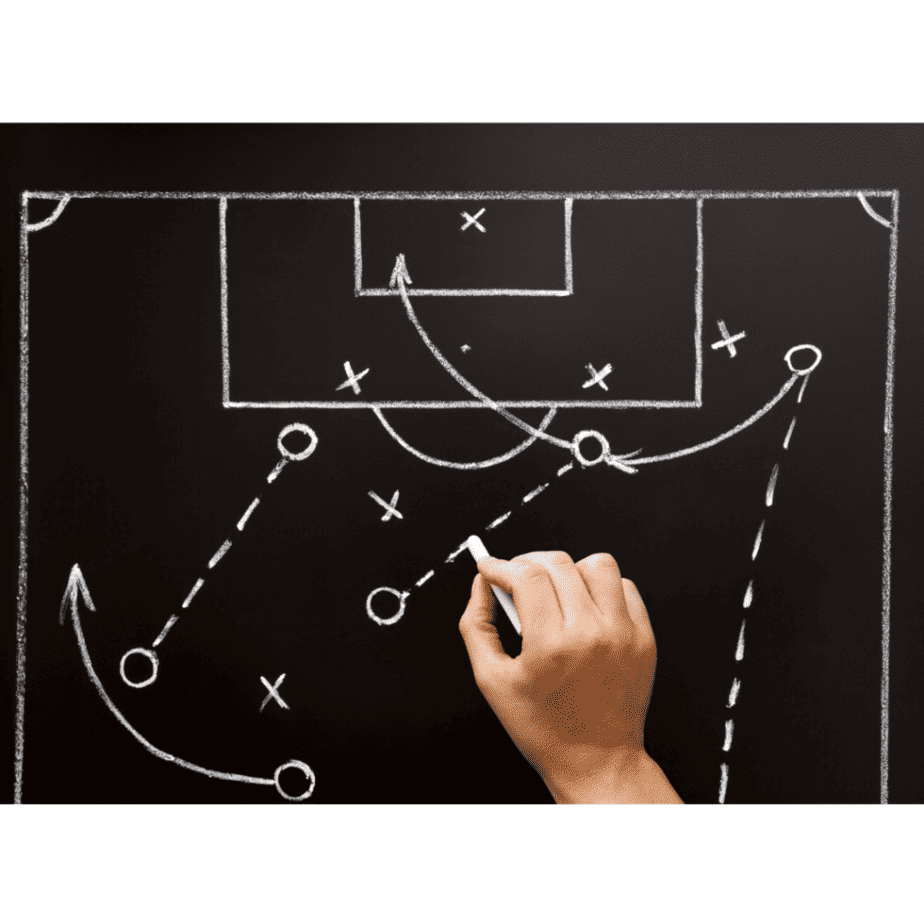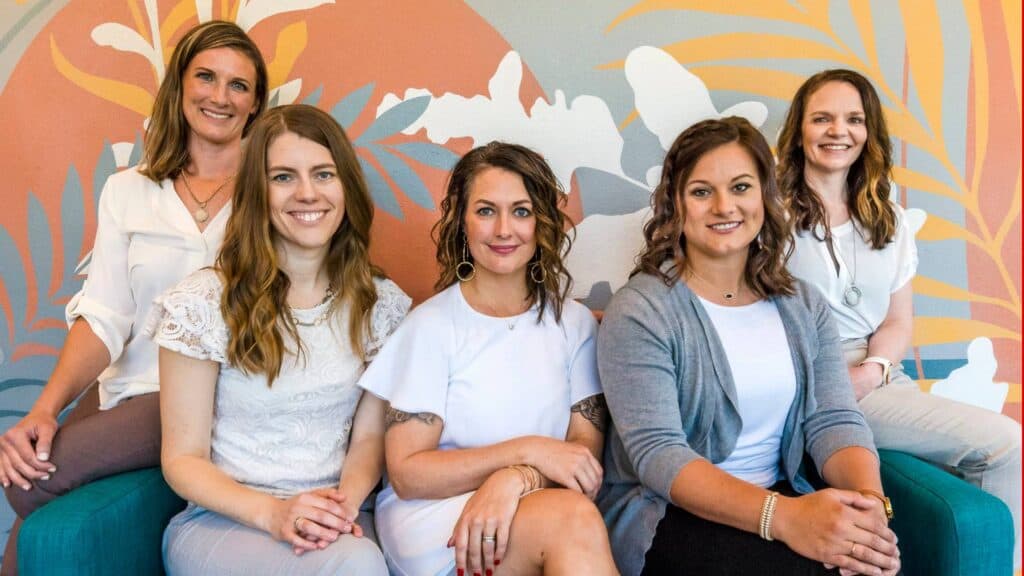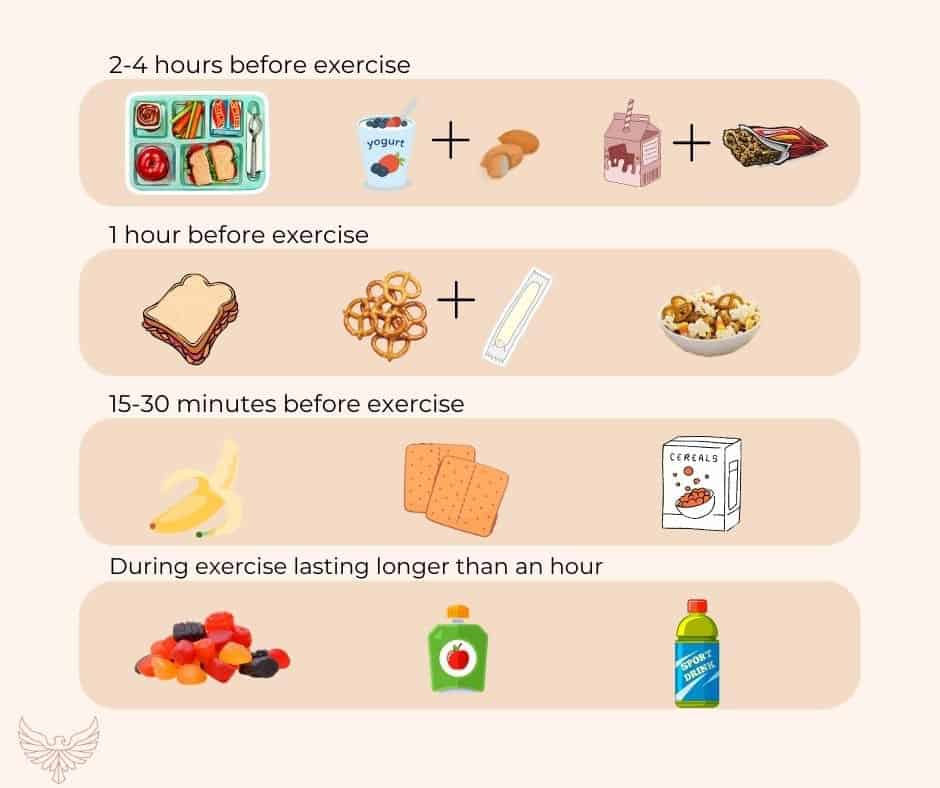by Anna Stewart LMSW

Eating disorders are intricate conditions that intertwine medical and mental health challenges. It is vital to acknowledge that these disorders are not a choice; they are serious illnesses that demand our compassion and informed intervention. For too long, treatment has focused predominantly on physical health. However, groundbreaking insights now reveal that integrating mental health services into treatment yields profound and lasting improvements in
recovery. Therapy is a fundamental pillar in the battle against eating disorders. Engaging in evidence-based psychological therapies has demonstrated remarkable efficacy in alleviating distress and reducing symptoms. These interventions are most powerful when incorporated into a comprehensive, multidisciplinary approach that combines medical care, nutrition guidance, and robust support systems. Involving family and caregivers in treatment enhances effectiveness, reinforcing the critical role of a nurturing support network.

Embarking on therapy can be a daunting experience, especially amid uncertainty or prior negative experiences. It’s perfectly normal to feel apprehensive navigating the emotional complexities that arise. To empower yourself, consider reaching out to your therapist before your
session to discuss your concerns or questions. This proactive engagement sets the stage for a fruitful dialogue, allowing you and your therapist to prepare for meaningful and constructive discussions. As therapists, our primary goal is to create a safe, nurturing environment where transformative change can flourish. Recognizing that change is often a gradual process is essential for building a strong therapeutic alliance. Each person’s path to recovery is distinct; while some may grapple with resistance to change, others may eagerly embrace the therapeutic process. A skilled therapist keenly observes these dynamics, assessing progress within therapy sessions and in daily life. The heart of effective therapy lies in genuine empathy and
understanding. A proficient therapist not only possesses a deep understanding of psychological principles but also an awareness of the complexities surrounding eating disorders. Collaborating with registered dietitians ensures a holistic approach that addresses every facet of your health—physical, emotional, and psychological.

Remember, the journey toward lasting change begins with you. Recovery requires dedication and effort, but having a supportive therapist can catalyze your growth. Embrace the process and extend to yourself the grace, patience, and empathy you deserve. Recovery may be filled with ups and downs; some days will be challenging, while others will shine brightly. Each step forward, regardless of size, propels you closer to your goals. At Unbound Recovery, we believe wholeheartedly in your potential for transformation. You matter deeply, and your presence enriches the world around you. As you strive to become the best version of yourself, know that you are not alone. Your journey not only benefits you but also those who care about you. When you're ready to embrace change, we would be honored to guide you on your path to a healthier, happier life.
References
Anna Stewart , LMSW has an empathetic, compassionate counseling style and passion for serving those with eating disorders and body image issues. She is currently accepting new clients in Topeka and Manhattan.
Unbound Recovery is dedicated and committed to providing the best eating disorder treatment care to Kansas Residents. If you would like to refer clients to us, please fax referral information to: 785-534-5014. We will contact clients and get them scheduled for services. Our providers will provide updates to you on a regular basis.

by Taylor Curtright, M.Ed., LPC on February 20th, 2025
Unbound Recovery is excited to announce that our 2nd location is now open! Our outpatient clinic in Topeka, KS is currently accepting clients who struggle with eating disorders. We have both therapy and nutrition services available. Services include the following:
Our Manhattan office is also accepting new clients for both mental health therapy and nutrition counseling services! Both locations offer in-person and telehealth services.
Both locations accept most major insurances. We also have a same day cash rate.
Topeka Location Address and Contact Information:
3601 SW 29th Street, Suite 128 & 213
Topeka, KS 66614
785-510-3008
Manhattan Location address and Contact Information:
1201 Poyntz Avenue
Manhattan, KS 66502
785-510-3008
Eating disorders are serious, life-threatening psychiatric illnesses in which individuals experience disturbances in their eating behaviors, related thoughts, and emotions. Approximately 10,200 deaths per year, or one death every 52 minutes, are the direct result of an eating disorder; with anorexia nervosa having the highest case mortality rate and second-highest crude mortality rate of any mental illness (1).
Contrary to some beliefs, eating disorders are not a choice; they are complex medical and psychiatric illnesses, in which biological, environmental, and social elements play a role. Eating disorders commonly co-occur with other mental health conditions (2), as over 70% of people who struggle with an eating disorder, also struggle with other conditions (1) such as depression, anxiety, and obsessive compulsive disorder, among others (2). They also have life-threatening medical complications.
Research shows that the earlier the treatment, the better the outcomes for the treatment of eating disorders. Many studies also suggest that only about ⅓ of eating disorders were detected by healthcare providers (3). Screening can be an effective method for early detection of eating disorders. The SCOFF Questionnaire is a five-question screening tool used to clarify suspicion that an eating disorder may exist (4). It can be delivered verbally or in written form.
An answer of ‘yes’ to two or more questions warrants further questioning and more comprehensive assessment.
Two additional questions have been shown to indicate a high sensitivity and specificity for bulimia nervosa. These questions indicate a need for further questioning and discussion.
Eating disorders present with many medical complications and can be unique to the eating disorder behaviors that the individual participates in, including restrictive behaviors and/or compensatory behaviors (laxatives, diuretics, self-induced vomiting, over-exercise).
| Restrictive Behaviors Complications | Compensatory Behaviors Complications |
| -Gastrointestinal issues -Gastroparesis -Constipation -Stomach Pain -Bloating -GERD -Bone Density Loss -Hypothalamic hypogonadism -Hypoglycemia and sudden cardiac death -Bone marrow failure -Liver abnormalities -Skin, hair, nail abnormalities -Other complications associated with malnutrition and energy deficiency -Starved thinking (rigid, fearful, obsessive thoughts) | -Abrupt electrolyte changes and cardiac arrest -Dental damage -Barrett’s esophagus and GERD -Rumination -Gastritis, ulcers, upper GI tract bleeding, esophageal tears -Parotid hypertrophy -Dehydration -Pancreatitis and kidney stones (laxative abuse) -Kidney failure (diuretic abuse) -Pseudo-Bartter Syndrome and rebound edema (when purging stops) -Other complications associated with energy deficiency and malnutrition |
Because eating disorders present with medical, nutritional, and psychological complications, a collaborative, multi-disciplinary team approach is necessary in the treatment of eating disorders. Common providers involved in the care of an individual include:
Unbound Recovery is an outpatient clinic in Manhattan and Topeka, KS that specializes in the treatment of individuals struggling with eating disorders, disordered eating, chronic dieting, body image concerns, and coexisting mental health conditions. Unbound Recovery has both mental health therapists and dietitians who collaborate with outside providers to establish a team approach for the treatment of eating disorders. Our director, Dr. Amber Howells is a Certified Eating Disorder Specialist. Our other providers have received specialized training in eating disorders and are currently working towards becoming a Certified Eating Disorder Specialist (CEDS).
Medical Management Recommendations:
Our providers will often make medical management recommendations to primary care providers to ensure the safety of treatment in the outpatient setting. Recommendations are based on evidence-based resources and the severity of the eating disorder symptoms and behaviors. These recommendations often include the following:
References
Unbound Recovery is dedicated and committed to providing the best eating disorder treatment care to Kansas Residents. If you would like to refer clients to us, please fax referral information to: 785-534-5014. We will contact clients and get them scheduled for services. Our providers will provide updates to you on a regular basis.

Please welcome one of our newest team members at Unbound Recovery, Hannah Coates, Therapy Intern. Hannah is currently working on her M.Ed. in Clinical Mental Health Counseling from Wichita State University and has her BS in psychology from Kansas State University. Her background as both a collegiate athlete and a first responder, bring a unique perspective to counseling and have fostered a deep interest and growing expertise in areas such as trauma counseling, anxiety, depression, imposter syndrome, high-functioning neurodivergence, and the complexities of grief, loss, and death. Hannah is dedicated to cultivating a safe and welcoming space where clients feel supported and heard. She uses empathy and understanding to connect with each client’s unique experiences, fostering a nonjudgmental space that encourages open communication and builds trust. Taking an integrative approach, she works with each individual client to establish a treatment plan specific to their needs and goals. Hannah is passionate about empowering her clients to navigate life’s challenges, and strives to use compassion and understanding to let her clients know they are not alone in their journey. Hannah is currently accepting new therapy clients at the Manhattan location for a reduced rate!
Please welcome our new team member at Unbound Recovery, Sarah Hoing, RDN. We are thrilled to have Sarah joining our team with her experience and passion working with women and children. Sarah is excited about specializing in providing excellent treatment to those who are struggling with eating disorders and body image issues. She will start seeing nutrition clients at both the Manhattan and Topeka locations in March!
Please welcome another new team member at Unbound Recovery, Anna Stewart , LMSW. We are thrilled to have Anna joining our team with her empathetic, compassionate counseling style and passion for serving those with eating disorders and body image issues. She will start seeing therapy clients at both the Manhattan and Topeka locations in March!

Unbound Recovery is excited to announce that we are opening a 2nd location! Our outpatient clinic in Topeka, KS will start seeing clients who struggle with eating disorders on Sept. 9th, 2024. We will have both therapy and nutrition services available. Services include the following:
Our Manhattan office is also accepting new clients for both mental health therapy and nutrition counseling services! Both locations offer in-person and telehealth services.
Both Locations accept most major insurances. We also have a same day cash rate.
Topeka Location Address and Contact Information:
3601 Southwest Plaza, Suite 128
Topeka, KS 66614
785-510-3008
info@unboundmhk.com
Manhattan Location address and Contact Information:
1201 Poyntz Avenue
Manhattan, KS 66502
785-510-3008
info@unboundmhk.com

Eating disorders are serious, life-threatening psychiatric illnesses in which individuals experience disturbances in their eating behaviors, related thoughts, and emotions. Eating Disorders impact both mental and physical health and require a collaborative and specialized treatment approach. Unbound Recovery’s providers are passionate about the holistic care of clients struggling with eating disorders, disordered eating, chronic dieting, and body image concerns. Not only are our providers credentialed and licensed in their respective fields, all of our mental health and nutrition providers are specializing in eating disorder care and are working towards their Certified Eating Disorder Specialist credential (CEDS) through the International Association for Eating Disorder Professionals (IAEDP). This certification takes no less than two years and includes the following:
Unbound Recovery is dedicated and committed to providing the best eating disorder treatment care to Kansas Residents. If you would like to refer clients to us, please fax referral information to: 785-534-5014. We will contact clients and get them scheduled for services. Our providers will provide updates to you on a regular basis.

Please welcome our newest team member at Unbound Recovery, Taylor Curtright, M.Ed, LPC-T. Taylor has a BS degree in Psychology from Kansas State University and a M.Ed in Clinical Mental Health Counseling from Wichita State University. She is knowledgeable in the development and treatment of disordered eating behaviors and offers support with the intent to help them cultivate a healthier relationship with food and their bodies. She strives to create a safe and comfortable environment to build a therapeutic relationship with clients. Her treatment approach includes utilizing techniques and interventions from different types of therapy to individualize treatment based on clients’ needs. She remains passionate about advocating for mental health and is thankful to be a part of her clients’ healing journey.
In her free time, she enjoys spending days out on the lake, reading on her kindle, indulging in one of her many hobbies, and watching horror movies and/or youtube videos.
Do you know anyone who wants to work with a wonderful, compassionate, and collaborative team? Please share the following information with individuals who may be interested in joining our team! Unbound Recovery continues to grow, and we are currently hiring a Full-Time Registered Dietitian Nutritionist. The full job description can be found at: Registered Dietitian Nutritionist - Manhattan, KS 66502 - Indeed.com.

Eating disorders are serious, life-threatening psychiatric illnesses in which individuals experience disturbances in their eating behaviors, related thoughts, and emotions (1). Contrary to some beliefs, eating disorders are not a choice; they are complex medical and psychiatric illnesses, in which biological, environmental, and social elements play a role. Eating disorders commonly co-occur with other mental health conditions such as depression, anxiety, and obsessive compulsive disorder, among others (2). They also have life-threatening medical complications.

Research shows that the earlier the treatment, the better the outcomes for the treatment of eating disorders. Many studies also suggest that only about ⅓ of eating disorders were detected by healthcare providers (3). Screening can be an effective method for early detection of eating disorders. The SCOFF Questionnaire is a five-question screening tool used to clarify suspicion that an eating disorder may exist (4). It can be delivered verbally or in written form.
An answer of ‘yes’ to two or more questions warrants further questioning and more comprehensive assessment.
Two additional questions have been shown to indicate a high sensitivity and specificity for bulimia nervosa. These questions indicate a need for further questioning and discussion.
1. Are you satisfied with your eating patterns?
2. Do you ever eat in secret?
Eating disorders present with many medical complications and can be unique to the eating disorder behaviors that the individual participates in, including restrictive behaviors and/or compensatory behaviors (laxatives, diuretics, self-induced vomiting, over-exercise).
| Restrictive Behaviors Complications | Compensatory Behaviors Complications |
| -Gastrointestinal issues -Gastroparesis -Constipation -Stomach Pain -Bloating -GERD -Bone Density Loss -Hypothalamic -Hypogonadism -Hypoglycemia and sudden cardiac death -Bone marrow failure -Liver abnormalities -Skin, hair, nail abnormalities -Starved thinking (rigid, fearful, obsessive thoughts | -Abrupt electrolyte changes and cardiac arrest -Dental damage -Barrett’s esophagus and GERD -Rumination -Gastritis, ulcers, upper GI tract bleeding, esophageal tears -Parotid hypertrophy -Dehydration -Pancreatitis and kidney stones (laxative abuse) -Kidney failure (diuretic abuse) -Pseudo-Bartter Syndrome and rebound edema (when purging stops) -Other complications associated with energy deficiency and malnutrition |

Because eating disorders present with medical, nutritional, and psychological complications, a collaborative team approach is necessary in the treatment of eating disorders. Common providers involved in the care of an individual include Mental Health Therapist, Dietitian, Primary Care Physician, Psychiatrist, and other professionals as needed.
Unbound Recovery is an outpatient clinic in Manhattan, KS that specializes in the treatment of individuals struggling with eating disorders, disordered eating, chronic dieting, body image concerns, and coexisting mental health conditions. Unbound Recovery has both mental health therapists and dietitians who collaborate with outside providers to establish a team approach for the treatment of eating disorders. Our providers have received specialized training in eating disorders and are currently working towards becoming a Certified Eating Disorder Specialist (CEDS).
Our providers will often make medical management recommendations to primary care providers to ensure the safety of treatment in the outpatient setting. Recommendations are based on evidence-based resources and the severity of the eating disorder symptoms and behaviors. These recommendations often include the following:


Currently, we are accepting new clients at both our Manhattan, KS and Topeka, KS Locations! If you would like to refer clients to us, please fax referral information to: 785-534-5014. We will contact clients and get them scheduled for services. Our providers will provide updates to you on a regular basis. We accept most major insurances and are accepting new clients. If you have any questions, please contact our office at 785-510-3008.

March is National Nutrition Month®! National Nutrition Month® is an annual campaign sponsored by the Academy of Nutrition and Dietetics that focuses on the development of healthy habits around food and movement. This year’s theme is “Beyond the Table” which focuses on so many aspects of nutrition including food production and distribution, and purchasing food from a variety of sources such as grocery stores and farmer’s markets. This year, the focus is also on the various locations that we eat such as around the dinner table, on-the-go, at work/school, and at various events. There is no one-way approach to building a healthy lifestyle or a healthy relationship with food. It is important to find strategies that work for you and your family while also honoring health. One way that Unbound Recovery promotes this message is through Intuitive Eating and mindful movement strategies.
The importance of adequate nutrition is keeping our bodies and brains functioning optimally and promoting a strong metabolism. The energy that we consume is utilized by our organ systems (70-80%), digestive processes (10%), and activity done throughout the day (15-30%). When we have a consistent energy deficiency or malnutrition, there are physical consequences, such as slowed metabolism, abnormal heart rhythms, decreased functioning of non-crucial organ systems (i.e. reproductive systems), decreased bone density, poor growth and development, digestive issues, abnormal electrolytes, nutrient deficiencies, digestive issues, and fatigue (1).
Malnutrition can also cause mental health concerns. Did you know that 20-40% of the energy that we consume is utilized by our brain (2)? Our brain is active 24/7, regulating all the body’s systems. It takes a lot of energy to do that! Adequate nutrition promotes neurotransmitter development, specifically dopamine and serotonin, which impacts pleasure and motivation and mood and appetite, respectively (3-5). Malnutrition can exacerbate other mental health conditions, cause personality changes, mood disturbances, and the inability to concentrate.
Intuitive Eating (IE) is based on interoceptive awareness, or the recognition of the body’s signals or physical sensations and utilizing this information to honor health and meet our body’s needs (6). There are 10 principles of IE (6). Dietitians utilize specific strategies to guide clients through developing a healthy relationship with food through the use of IE. IE is only recommended for those who are adequately nourished. Malnourished individuals often have muted hunger/fullness cues and therefore cannot rely on those signals for adequate nourishment. The 10 principles of IE include (6):
Each of the principles focus on staying attuned with internal signals that the body is providing and practicing behaviors to improve health versus focusing on weight. IE is an anti-diet approach that deconstructs morality around food to help individuals establish healthy patterns and behaviors while also recognizing the importance of enjoying food for mental and physical satisfaction.

Mindful movement is one principle of IE. You may be asking why use the term mindful movement instead of exercise? The answer is simple: language often impacts how individuals feel about something. Exercise often has negative connotations and is associated with pain/discomfort, dread, fatigue, etc. Mindful movement invites flexibility, includes daily forms of activity, and respects the body's limitations. Mindful movement encourages individuals to think about movement for health instead of how movement can impact body shape and size. It also recognizes the importance of rest days and discourages the use of movement as a compensatory behavior for eating.
When individuals have established a healthy relationship with movement, they tend to enjoy movement more, stick with it longer, have decreased stress around movement, and reap the benefits of movement including: happy endorphins; heart, respiratory, and bone health; and improved strength and flexibility. The consequences of an unhealthy relationship with movement can include: added mental and emotional stress, muscle damage, slowed metabolism, heart complications, and relative energy deficiency in sports.
Tips for incorporating mindful movement in your daily routine include:
Overall, activity should be enjoyable. Individuals who describe their routines as flexible and pleasurable are more likely to establish a life-long routine that includes movement. This routine ultimately impacts health in positive ways.

During March, we also celebrate National Registered Dietitian Nutritionist Day! Registered Dietitian Nutritionists are food and nutrition experts who have met academic and professional criteria to earn the RDN credential. RDNs must obtain a graduate degree, complete an internship, pass a national credentialing exam, and become licensed by the state in which they work. They provide nutrition and health-related guidance to individuals and groups throughout the lifespan. Some specialize in a certain area of practice, such as gastrointestinal disorders, diabetes, or eating disorders, among others. Help us celebrate Registered Dietitian Nutritionists (RDNs) on Wednesday, March 13th 2024 by recognizing and appreciating your favorite dietitians!
References

Currently, we are accepting new clients at both our Manhattan, KS and Topeka, KS Locations! If you would like to refer clients to us, please fax referral information to: 785-534-5014. We will contact clients and get them scheduled for services. Our providers will provide updates to you on a regular basis. We accept most major insurances and are accepting new clients. If you have any questions, please contact our office at 785-510-3008.
We are also currently hiring another therapist for our Topeka Office. Both part-time and full-time options are available, flexible scheduling, and we provide eating disorder treatment training for providers. For full position details, please visit: Outpatient Therapist for our Topeka, KS location - Topeka, KS 66614 - Indeed.com.

Public awareness is essential to recognize and effectively treat individuals with eating disorders. Did you know that February 26th through March 3rd, 2024 is Eating Disorders Awareness Week (EDAW)? EDAW is an annual campaign that focuses on educating the public about eating disorders. The goal of EDAW is to provide hope and engage support for individuals and families affected by eating disorders (1). Unbound Recovery is committed to raising awareness so that individuals can receive the help that they need and deserve!
Eating disorders are serious, life-threatening psychiatric illnesses in which individuals experience disturbances in their eating behaviors, related thoughts, and emotions (2). Contrary to some beliefs, eating disorders are not a choice; they are complex medical and psychiatric illnesses, in which biological, environmental, and social elements play a role. Eating disorders commonly co-occur with other mental health conditions such as depression, anxiety, and obsessive compulsive disorder, among others (1). Eating disorder mortality statistics are grim (2):
There are many types of eating disorders (1):
Eating disorders can affect anyone regardless of age, race, gender identity, sexual orientation, background, and body size/shape (1). Eating disorders not only impact the individual suffering from the illness; eating disorders emotionally and financially impact families and can strain friendships and relationships.
Additionally, eating disorders may run in families given that there are biological predispositions that make individuals vulnerable to developing an eating disorder (1). Furthermore, this can create additional emotional and financial distress for families.
The prevalence of eating disorders is staggering (2):
Research shows that the earlier the treatment, the better the outcomes for the treatment of eating disorders. Many studies also suggest that only about ⅓ of eating disorders were detected by healthcare providers (3). Identifying and diagnosing an eating disorder requires understanding of how eating disorders present. Eating disorders present physically, mentally, and behaviorally. Some of the common signs and symptoms are listed below (3):
| Physical S/S | Emotional S/S | Behavioral S/S |
| -Significant weight fluctuations -Irregular menstrual cycles or low testosterone -GI Issues (constipation, bloating, cramping, reflux) -Dizziness/fainting -Dry and brittle skin and nails -Hair loss -Feeling cold all the time -Difficulty concentrating -Poor immunity -Muscle weakness -Sleep issues -Dental issues -Cuts and calluses on hands/knuckles | -Fear of gaining weight -Fear of eating in public -Self-worth depends on body shape and size -Preoccupation with food -Obsessive interest in cooking shows or recipes -Social withdrawal -Mood Swings -Significant change in personality -Flat affect or lack of emotions -Heightened depression, anxiety, other mental health conditions -Irritability | -Frequent body checking or self-weighing -Eating small portions or refusing to eat -Eating in secret or hiding food -Disappearing or going to the bathroom after eating -Unusual food rituals -Excessive exercise -Rigidity in behaviors or routines -Wearing baggy clothing -Cooking food for others but not participating |
Because eating disorders present with medical, nutritional, and psychological complications, a collaborative team approach is necessary in the treatment of eating disorders. Common providers involved in the care of an individual include Mental Health Therapist, Dietitian, Primary Care Physician, Psychiatrist, and other professionals as needed.
Unbound Recovery is an outpatient clinic in Manhattan, KS that specializes in the treatment of individuals struggling with eating disorders, disordered eating, chronic dieting, body image concerns, and coexisting mental health conditions. Unbound Recovery has both mental health therapists and dietitians who collaborate with outside providers to establish a team approach for the treatment of eating disorders. Our providers have received specialized training in eating disorders and are currently working towards becoming a Certified Eating Disorder Specialist (CEDS).
There are a variety of eating disorder treatment strategies that our providers utilize:
Our providers will also assess and make recommendations for higher level of care, if needed. Higher level of care includes Intensive Outpatient Programs (IOP), Partial Hospitalization Programs (PHP), and Residential facilities. We will also coordinate with the care teams to assist with admission and throughout their care in these programs until discharge and return to our care. The closest higher level of care programs to our area include Kansas City, Denver, St. Louis, and Tulsa.

Our providers can connect clients with additional resources and educational materials regarding higher level of care facilities, eating disorder educational materials, and support resources in the community.
Unbound Recovery also provides two free support groups on Monday evenings, including a support group for loved ones of those who struggle with eating disorders and a support group for those in recovery.
We are also currently hiring another therapist. Both part-time and full-time options are available, flexible scheduling, and we provide eating disorder treatment training for providers. For full position details, please visit: https://www.indeed.com/job/outpatient-therapist-d78c77be65d3f7e4.
Unbound Recovery is an outpatient clinic that specializes in the treatment of individuals struggling with eating disorders, disordered eating, chronic dieting, body image concerns, and coexisting mental health conditions. Unbound Recovery provides both therapy and nutrition counseling services. All of our therapists and registered dietitian nutritionists are currently working on their certification to become Certified Eating Disorder Specialists (CEDS). We accept most major insurances. Currently, we are accepting new clients at both our Manhattan, KS and Topeka, KS Locations!

Unbound Recovery is growing and happy to announce new providers joining the practice. We would like to welcome Alissa Osterhaus, LSCSW to the team. Alissa started seeing clients with Unbound Recovery on January 2nd, 2024 and is accepting new clients currently. She earned a Bachelor’s Degree in Social Work
from Kansas State University, and a Master’s Degree in Social Work from the University of Kansas. She is a Licensed Specialist Clinical Social Worker and is in the process of obtaining her Certified Eating Disorder Specialist (CEDS) certification from the International Association of Eating Disorder Professionals Foundation (IAEDP). Alissa comes to us from working at a community mental health center for almost 5 years, working primarily with individuals struggling with depression, anxiety, low self-esteem, poor body image, trauma, and disordered eating/eating disorders. Alissa strives to provide a safe space where individuals feel heard and seen while also using evidenced-based approaches to empower and create meaningful change. She is credentialed with most major insurances: BCBS, Aetna, United Healthcare, Cigna, Medicaid, and Sunflower. Credentialing still processing for Tricare and Aetna Medicaid

We would also like to welcome Sophia Jones, RDN, LD to Unbound Recovery. Sophia earned Bachelor’s Degrees in Nutrition and Health and Dietetics at Kansas State University. She is a Registered Dietitian Nutritionist who previously worked at an inpatient rehabilitation setting helping patients regain strength and improve quality of life with positive nutrition changes. She has been staying at home to take care of her two precious children and help her husband with his local small business the past few years. She is thrilled to return to her passion in the realm of dietetics, which is guiding individuals out of the diet culture mentality and into freedom through a healthy relationship with food and their bodies. She currently is working on insurance credentialing. Once credentialed with insurances, she will be accepting new clients at Unbound Recovery.

Kohleen Zerull is currently a therapy intern seeing clients at Unbound Recovery. Kohleen is in her final year of her master’s level clinical counseling program. She currently holds a Bachelor’s Degree in Psychology with minors in Art and Interdisciplinary Neuroscience. Kohleen has 4 years of involvement in multicultural counseling research. She guides her clients with empathetic listening and understanding. Kohleen views the therapeutic process as a supportive environment where clients can process traumatic experiences, gain valuable skills to improve their relationships, and discuss multicultural concerns and their effects. She will be employed with Unbound Recovery after her graduation in May. At that time she will start the insurance credentialing process with most major insurance companies, and will be accepting new clients.
Other providers at Unbound Recovery include Alissa Mick, MS, RDN, LD, who provides nutrition counseling services and is a registered dietitian nutritionist. Alissa is currently accepting new clients. Amber Howells, PhD, RDN, LD provides nutrition counseling services and is the Director at Unbound Recovery.
We are also currently hiring another therapist. Both part-time and full-time options are available, flexible scheduling, and we provide eating disorder treatment training for providers. For full position details, please visit: https://www.indeed.com/job/outpatient-therapist-d78c77be65d3f7e4.

Unbound Recovery is excited to announce that we are offering a meal supervision group to our clients. Our meal supervision group is part of our treatment plan for high risk clients who struggle with nourishing adequately and have significant fear/anxiety around food. The group is facilitated by either a dietitian or therapist. As part of the treatment plan, the purposes of the meal supervision are to provide additional support and accountability at mealtimes, assist with regulating the nervous system around eating, normalize eating experiences, and decrease fear around food. The group will start January 23rd, 2024 and will be held on Tuesday and Thursday evenings from 6-7 PM through telehealth services. Insurance will be billed for group services or there is a cash pay rate. For additional information regarding group services, please reach out to 785-510-3008.Other services offered include: Individual therapy sessions, individual nutrition counseling sessions, presentation services, recovery support group, and loved ones support group. For more information about all of our services, please visit our website at www.unboundmhk.com.
Unbound Recovery is an outpatient clinic that specializes in the treatment of individuals struggling with eating disorders, disordered eating, chronic dieting, body image concerns, and coexisting mental health conditions. Unbound Recovery provides both therapy and nutrition counseling services. All of our therapists and registered dietitian nutritionists are currently working on their certification to become Certified Eating Disorder Specialists (CEDS). We accept most major insurances. Currently, we are accepting new clients at both our Manhattan, KS and Topeka, KS Locations!


Did you know that September 25-29, 2023 was Weight Stigma Awareness Week? No worries if you weren’t aware… Most people don’t even know that weight stigma is a concept, let alone that it has an awareness week. According to the National Eating Disorders Association (NEDA), weight stigma is stereotyping, holding biases, or discrimination based on a person’s size. Weight stigma is prevalent in many aspects of our society, including healthcare.
Weight stigma isn’t always blatant; it can look like: negative comments about weight, fat-shaming, concern trolling, and providing different recommendations to clients/patients for the same health concerns/issues based on body size. Weight stigma in healthcare can potentially be harmful. It can cause the following and more: individuals may not seek out needed healthcare services due to fear of being weighed and/or weight loss discussions; chronic dieting, restriction, increased risk of binge eating, and body dissatisfaction; delayed diagnosis of eating disorders and/or misdiagnosis of other conditions. Let’s end weight stigma in our community! Learn more below!

Written by Amber Howells, PhD, RDN, LD
Unbound Recovery is an outpatient clinic that specializes in the treatment of individuals struggling with eating disorders, disordered eating, chronic dieting, body image concerns, and coexisting mental health conditions. Unbound Recovery provides both therapy and nutrition counseling services. All of our therapists and registered dietitian nutritionists are currently working on their certification to become Certified Eating Disorder Specialists (CEDS). We accept most major insurances. Currently, we are accepting new clients at both our Manhattan, KS and Topeka, KS Locations!

In a world bombarded with unrealistic beauty standards and the constant pressure to conform to an idealized image of the "perfect" body, it's crucial to champion the cultivation of a healthy body image in the people we care about. Whether it's a friend, family member, partner, or even ourselves, fostering a positive relationship with our bodies is a journey worth embarking upon.
1. Lead by Example: To influence others positively, start by practicing self-acceptance and self-love. Embrace your own body, flaws and all. Let your actions and words reflect a genuine appreciation for your body's uniqueness. When your loved ones witness your self-assuredness, they're more likely to follow suit.

2. Encourage Self-Compassion: Teach your loved ones to treat themselves with kindness and empathy. Remind them that everyone has imperfections and setbacks, but these do not define their worth. Encourage them to speak to themselves as they would to a friend in times of struggle.
3. Focus on Health, Not Appearance: Shift the emphasis from external appearance to overall health and well-being. Engage in activities that nourish the body and mind, such as regular exercise, nutritious eating, and sufficient sleep. Help your loved ones recognize the value of these habits beyond their impact on physical appearance.
4. Promote Media Literacy: Discuss the deceptive nature of media images and the often heavy-handed use of photo editing tools. Help your loved ones become critical consumers of media, enabling them to discern between reality and illusion, and to understand that even the people in magazines don't always look like their photos suggest.
5. Celebrate Diversity: Embrace and celebrate the diversity of body shapes, sizes, and colors. Help your loved ones understand that beauty comes in all forms. Encourage them to follow social media accounts that showcase body positivity and diversity, as these can serve as uplifting reminders of the uniqueness and beauty present in everyone.
6. Compliments Beyond Looks: Focus your compliments on qualities beyond physical appearance. Acknowledge their kindness, intelligence, sense of humor, or any other trait that makes them special. This helps shift the spotlight from appearance to the intrinsic qualities that truly matter.

7. Open Dialogue: Create a safe space for open conversations about body image and self-esteem. Encourage your loved ones to share their thoughts, feelings, and insecurities. Listening without judgment can help them feel supported and understood.
8. Set Realistic Goals: If your loved ones express a desire for self-improvement, guide them towards setting realistic and attainable goals. Remind them that progress takes time and effort, and that small victories are worth celebrating.
9. Challenge Negative Self-Talk: Gently help your loved ones recognize and challenge negative self-talk. Encourage them to reframe their thoughts and replace self-criticism with self-compassion.
10. Seek Professional Help: If negative body image issues persist or escalate into more serious concerns like eating disorders or body dysmorphia, encourage seeking professional help. Therapists, registered dietitians, counselors, or support groups specializing in body image and self-esteem can provide the guidance and tools needed to navigate these challenges
Fostering a healthy body image is a gift that keeps on giving. By supporting the people you love in cultivating self-love, self-acceptance, and a positive relationship with their bodies, you contribute to a happier, more resilient, and confident individual. Remember, the journey to a healthy body image begins with compassion, understanding, and a commitment to embracing our bodies for all that they are.

At Unbound Recovery, we have immediate openings for outpatient nutrition counseling services and mental health services. We specialize in working with adolescents and adults with eating disorders, disordered eating patterns, body image concerns, chronic dieting, self-esteem concerns, and more. Call us today at 785-510-3008 or email us at info@unboundmhk.com to get started. Currently, we are accepting new clients at both our Manhattan, KS and Topeka, KS Locations!

About the Author:
Anna Binder-McAsey, RDN, LD, CLT
Anna is co-owner of Unbound Recovery and owner of Rethink Nutrition in Manhattan, KS.
In the competitive world of sports, athletes push their bodies to the limits to achieve excellence. If you're someone who lives and breathes sports, then you're familiar with the intense drive that propels us to give our all on the field, track, court, or wherever our favorite activity takes us. However, as we aim to push our boundaries, we must also be mindful not to push our bodies to an extreme. The pursuit of greatness sometimes comes at an unnoticed cost. That's where Relative Energy Deficiency in Sports (RED-S) comes into play. This silent adversary can impact an athlete's physical and mental well-being, ultimately impairing performance and jeopardizing overall health.

Before delving into the complexity of RED-S, it’s essential to grasp the fundamental concept of energy balance. For athletes, this principle is pivotal, potentially shaping your training and performance outcomes. Athletes’ bodies require an abundance of energy, sourced from food and beverages, to satisfy the demands of their training and performance. This energy fuels their physical activity and serves as the driving force behind vital bodily functions like maintaining heart rate, regulating body temperature, and supporting organ systems. However, it’s important to recognize that energy balance goes beyond solving a simple mathematical equation of “energy addition and subtraction”; it encompasses elements beyond what’s presented on the plate, including factors such as metabolic rate, individual variations, and the body’s adaptive responses.
Curious if RED-S is affecting you? Keep an eye out for these signs:
Recognizing early signs of RED-S, like fatigue and declining performance, allows for timely intervention. Cultivating a positive relationship with food, exercise, and one’s body is key to preventing and effectively managing RED-S and ensuring lasting well-being.
Now, I get it. Admitting that something might be off is tough, especially when you're used to dominating on the field. But here's the thing: seeking help isn't a sign of weakness. It's a testament to your commitment to your health and performance. When you reach out to a healthcare professional or a registered dietitian, you're taking control and making sure your body gets what it needs to thrive. Addressing RED-S requires a multidisciplinary approach involving coaches, medical professionals, dietitians and mental health experts. Think about it like this: if your car's making weird noises, you'd go to a mechanic, right? Your body's the same deal. Just as a skilled mechanic can fine-tune your car’s engine to perform at its best, these experts can fine-tune your nutrition, energy balance, and overall wellness game. Embrace their knowledge and support – because taking care of your body isn’t just a game; it’s a lifelong championship.

Dear athletes, whether you're a rookie or a seasoned pro, remember that your body is your ally in this amazing journey of sports and fitness. Let's treat it with the respect it deserves. Keep your energy intake in check, listen to your body's signals, and don't hesitate to ask for help when something feels off!
Sport is all about pushing boundaries, but we've got to do it the smart way. By understanding and respecting the delicate balance of energy in our bodies, we can continue to chase our dreams, set records, and enjoy a long, healthy athletic journey. So lace up those sneakers, grab that water bottle, and let's conquer the world—the right way!
At Unbound Recovery, we have immediate openings for outpatient nutrition counseling services and mental health services. We specialize in working with adolescents and adults with eating disorders, disordered eating patterns, body image concerns, chronic dieting, self-esteem concerns, and more. Call us today at 785-510-3008 or email us at info@unboundmhk.com to get started. Currently, we are accepting new clients at both our Manhattan, KS and Topeka, KS Locations!
About the Author:
Alissa Mick, MS, RDN, LD
Alissa is a Registered Dietitian Nutritionist (RDN) at Unbound Recovery in Manhattan, KS. She is a proud K-State alum and enjoys being a part of the Manhattan community. She is pursuing a specialization in Eating Disorders and Sports Dietetics.

While maintaining a “can do” attitude can be beneficial, it is essential to be cautious about taking it to the extreme, particularly in the realm of sports. Throughout my life, I have played in a variety of sports, including, soccer, tennis, snowboarding, basketball, cross-country, track & field, softball, volleyball – I think you get the point! Each of these sports has provided me with valuable life lessons that I have experienced and learned from. Physical activity and sports continue to be among my greatest passions. As an athlete, I always strived to make choices that would benefit my body and sought out the “next best thing” to outperform my competitors. However, during my high school years, I was unaware of the potential long-term consequences that could arise from “self-prescribing” dietary supplements I believed to be beneficial or following nutrition advice from influencers and coaches found on sources like Instagram or BuzzFeed. At that time, I possessed a “can do” attitude and believed I could overcome any challenge and be the best performer, sometimes blindly trusting information that ended up hindering my overall performance rather than improving it. This and many other experiences led me to develop a desire to become a Registered Dietitian and gain a deeper understanding of how athletes, like my younger self, can effectively utilize nutrition with physical activity to enhance performance and build self-confidence both on and off the field.
It is important to acknowledge that my adolescent experience with a lack of nutrition knowledge, societal pressure, and misplaced trust in uninformed superiors is not unique. Many individuals have faced similar situations that can lead to even more harmful behaviors and have long-lasting and damaging consequences. Prevalence of eating disorders estimates are 2-3 times higher in athletes vs. non-athletes, while rates are increasing for male athletes. Furthermore, the rates of eating disorders vary across different sports, with aesthetic sports such as gymnastics, cheerleading, dance, volleyball, swimming, rowing, and cross-country having reported rates as high as 42% among athletes. These statistics reported in the British Journal of Sports Medicine in 2016, highlight the urgent need for awareness, education, and support to address and prevent such detrimental outcomes in the athletic community.

We are reminded every day by society to not trust the cues our bodies give us and to not accept our bodies unless we look a certain way. When it comes to body image, as a coach, a parent, a teammate, it’s important to approach the topic with sensitivity and promote a healthy perspective. Remember, as a coach, a parent, or teammate, your role is to support and guide athletes not only in their physical training, but also in their overall well-being. By fostering a positive body image and promoting a healthy mindset, you can help athletes develop a strong sense of self and confidence, both on and off the field. Here are some considerations to boost individual and team morale:
Dietitians want to help you find the joy in moving your body and being physically active while supporting it through proper nourishment and self-care! Before exploring the “next best thing”, it is essential to prioritize important factors such as maintaining good hydration, ensuring sufficient energy intake, maintaining consistent sleep schedule, allowing for adequate recovery time, and being mindful of one’s mental health, stress levels, and emotional well-being.
At Unbound Recovery, we have immediate openings for outpatient nutrition counseling services and mental health services. We specialize in working with adolescents and adults with eating disorders, disordered eating patterns, body image concerns, chronic dieting, self-esteem concerns, and more. Call us today at 785-510-3008 or email us at info@unboundmhk.com to get started. Currently, we are accepting new clients at both our Manhattan, KS and Topeka, KS Locations!
References:
About the Author:
Alissa Mick, MS, RDN, LD
Alissa is a Registered Dietitian Nutritionist (RDN) at Unbound Recovery in Manhattan, KS. She is a proud K-State alum and enjoys being a part of the Manhattan community. She is pursuing a specialization in Eating Disorders and Sports Dietetics.

For many, the Christmas season comes with volunteering time, donating money and food, spending time with friends and family, deepening spirituality, attending parties and social gatherings, shopping, giving gifts, decorating the house, baking, eating, and so much more. For some, the season can be a time of joy and peace. For others, it is a time of constant stress, anxiety, and triggers. Those who struggle with disordered eating or eating disorders often panic around the holidays because so many gatherings and events are centered around food. This additional anxiety stems from lacking control around the eating experience and being pushed beyond the comfort zone of disordered eating behaviors and routines. Anxiety is often layers deep, including the fear of the unknown eating experience/menu, fear of standing out in front of others, fear of being uncomfortable and awkward, and fear of being identified and labeled as different. The food component often makes the entire holiday social event unpleasant for an individual who struggles with disordered eating.
At Unbound Recovery, in Manhattan, KS, registered dietitians work with individuals on how to cope with the food part of social events so that they can feel more comfortable attending and enjoying the events. One of the key pieces of eating disorder recovery is food flexibility and practicing letting go of rigidity and rules around food. Individuals work on giving themselves permission to eat all types of food in moderation and allowing themselves to enjoy the foods that they eat. We provide reminders that there are no good or bad foods, just foods that serve different purposes and all foods fit into a healthy lifestyle. We also remind clients that one day or one week of eating will not negate an overall healthy lifestyle. These messages help individuals build a healthy relationship with food and the holiday season. Don’t get me wrong, Registered Dietitian Nutritionists want you to be healthy and well; we just understand that to be healthy and well doesn’t mean completely restricting foods that you really like. An overall general healthy eating routine with added in fun foods that you truly enjoy helps build a great relationship with food, helps nourish the body and soul, and create overall wellbeing.

It is also important to remember that the holiday (whichever one it may be), is truly just another day. The food is just food; it doesn’t morph into a villainous creature out to get you. Food eaten on the holiday provides nourishment to your body just like any other day, and just like any other day, your body knows what to do with that food. Your body processes it to be used as energy so that you can function and enjoy all of the other holiday activities. Given the holiday is just another day, try to treat it like any other normal day with your eating routine. You do not have to compensate by restricting other meals so that you can enjoy a family meal. Restriction prior to a gathering often leads to overeating during the gathering. It is also important to have flexible thinking too. There are no set of food rules that you must abide by in order to be healthy. Letting go of the rules, often leads to a more pleasant eating and overall experience. For example, if you want to eat dessert, enjoy the dessert. If there are a lot of foods that you want to try, allow yourself permission to put a small portion of your favorites on your plate. If you don’t like a food, you don’t have to finish it; you can leave it on your plate. If you are still hungry, you can get seconds. If you are full, you can stop eating. If you feel uncomfortably full, remember that it is only a temporary feeling; your body knows what to do and that discomfort will dissipate. Remind yourself, that one meal isn’t going to make or break any situation.
Fear of fullness can be difficult for many who struggle with eating disorders. Another strategy you can use with the holidays is mindfulness, by staying attuned to hunger and fullness cues; savoring the flavors, aromas, and textures of food; and taking your time with the eating experience. Mindfulness helps with meal satisfaction and reduces the urges to continue to seek out food. You can also practice mindfulness with the social experience surrounding the meal too to reduce your focus on the actual meal. Sometimes focusing more on the social aspect, conversations, and friendships can reduce the anxiety around the food and assist in building other meaningful connections in your life.
One of the most powerful strategies you can use is saying “No.” If you are finding yourself extremely overwhelmed, tired, and anxious by all of the gatherings during the holiday season, it is ok to politely decline some of the invitations. You have to determine what is best for you and will protect your recovery. Sometimes resting and relaxing is exactly what you and your body need. Self-care activities are extremely important. Take a bath or shower, watch your favorite Holiday movie, or have a low key night in playing your favorite board game with your family. It’s ok to say “no.”

The Dreaded Comments from the Unaware
In our society, we often think it is appropriate to comment on what others are eating, and/or their appearance. Many times individuals ask how to handle comments from others during holiday gatherings. They want to handle the situation in a way that won’t upset others, but also will protect themselves and their recovery journey. For those who struggle with eating disorders or disordered eating, these potential comments cause a significant amount of anxiety around the holidays. These comments may be out of good intention or meant to be funny, but they are actually harmful and can be damaging to someone’s personal recovery journey and/or body image healing. Are you wondering what types of comments could actually be harmful? Examples include:
"That’s all you’re eating?”
"You need to put some meat on your bones”
"If you are such a great cook, how do you keep your nice figure?”
"You are so much skinnier than you used to be.”
"You need to eat more than that! Do you not like my cooking?”
"Go get some more dessert; you could use a little extra”
"You’re going to eat all of that? You must be hungry.”

I usually tell clients that no harm is meant by the comments, but they still are inappropriate. We will usually discuss how individuals who have not had similar struggles with eating or body image often are not aware of the complexities of eating disorders. It is not simply a choice to eat more or less. To overcome eating disorders, it takes significant counseling and therapy to overcome the thought processes, behaviors, and co-existing conditions that come along with eating disorders. Many are uninformed and thus they may even think that their comments are helpful. Many clients say that they smile and try to move on, but the comments often stick with them for a long time and can cause them to question their recovery process. Smiling and moving on is the polite “people pleaser” in us and easiest response to keep the peace. Often when we do this, it signals to others that their comments are ok, didn’t leave a mark, and/or are funny. None of which are true. If this response is the only one you feel comfortable with, it is ok. You can simply walk away, take a minute to yourself, and make the commitment to yourself that you will not let the comments impact your recovery. It may also be helpful to have a conversation with someone who you trust to help reinforce your recovery goals. I do encourage you to think of other responses that provide polite and direct feedback and that these types of comments are damaging. When clients ask me how to handle these types of comments, I usually ask “How snarky and sarcastic do you want me to get?” For anyone who knows me well, I usually like to keep the peace, but sometimes my sarcasm will allow my mind to contemplate snarky responses. For example:
"Oh, my figure that you are so weirdly interested in, is a ‘gift’ from my eating disorder."
"Ok Karen, maybe you should just pay attention to your own plate."
"Oh, I didn’t know you were prescribing meal plans for everyone."
Eyeroll. "Goodbye."
I usually opt for the more polite responses to help keep the peace with family. Depending on how comfortable you are with sharing information about yourself, there are a variety of responses that are polite and direct. For example:
"Those types of comments are really not helpful for me."
"Eating occasions are more difficult for me and these comments are not helping."
"We all have different nutritional needs, and I am trying to do what is best for my body"
"Your comments are not helping me in my recovery."
"Instead of passive aggressive comments, let’s have a conversation about my recovery so you better understand how very difficult this is for me.”
As a side note: If you are attending gatherings, it is best not to comment on what others are eating or their appearance. Holiday gatherings are not the place to start these sensitive conversations in front of others. If you are worried about someone, asking them to have a private conversation about your concerns at another time may be more appropriate. And when you do have these conversations with them, having appropriate resources available can be helpful. Remember, Unbound Recovery Registered Dietitians and Therapists are here to help!
At Unbound Recovery, we have immediate openings for outpatient nutrition counseling services and therapy services. We specialize in working with adolescents and adults with eating disorders, disordered eating patterns, body image concerns, chronic dieting, self-esteem concerns, and more. Call us today at 785-510-3008 or email us at info@unboundmhk.com to get started. Currently, we are accepting new clients at both our Manhattan, KS and Topeka, KS Locations!
About the Author:
Amber Howells, PhD, RDN, LD
As a Registered Dietitian Nutritionist (RDN) at Unbound Recovery in Manhattan, KS, Dr. Amber Howells enjoys working with individuals to restore their relationship with food, while helping them achieve overall health and wellness goals. She is a Kansas native and resides in Manhattan, KS with her husband and five children.

Note: If you haven’t read Body Image part 1, I encourage you to quickly read that article first… this article will make so much more sense!
Some individuals are surprised to learn that I have struggled personally with body image issues myself. Registered Dietitians are not immune to this challenge. As I have repaired my own body image issues, I have enjoyed assisting clients work on body image and will participate in some of the activities with the clients so they don’t have to go at it alone. One of my favorite activities to have clients complete is writing letters to a body part that they struggle with and then have the body part respond. I have the client read the letters in session, and I will share my letters as well. The purpose of this activity is to help the clients identify how harshly they are criticizing themselves and also identify something that they may appreciate about that specific body part. To demonstrate, I am sharing my body part letters below. I feel the need to preface this activity by saying that I am 5’0” and have struggled with my height my entire life. I don’t remember a day in my teenage years where my stature was not remarked on in some way and comments have continued into my adulthood. Although I have come to terms with my genetic blueprint for my height, there are days or moments that I can struggle and have to use healthy coping strategies to develop more positive thoughts. Writing these letters really did help me dive deeper into my own thoughts and appreciations and helped process what was going through my own mind. I hope you enjoy this example.

Dear Legs,
I’m writing to express my complete and utter disappointment in you. You have caused me so much pain and embarrassment throughout my life. When I look in the mirror and my eyes focus in on you, I can’t help but think about how much I hate you for so many reasons.
My life would be so much better if you would just be the way I want you to be. Why can’t you be like all the other normal legs?
Best wishes to you,
Amber
Dear Amber,
Wow! I know that you often give me disgruntled looks, but I guess I never understood how much I disgust you. After all, I’m just like your Grandma’s legs so I assumed since you loved her, you loved me too. It pains me to think how much you hate me after all that I have done for you.
I’m glad that we have gotten all of this out in the open so that maybe we can start healing our relationship. I’ll keep doing my best for you and if you could just appreciate me even just a little bit, we’d both be so much happier.
Warmest Regards,
Legs

There are many other activities that we can do to promote a healthier body image and therapists and dietitians at Unbound Recovery enjoy working with clients on body positivity. At Unbound Recovery, we have immediate openings for outpatient nutrition counseling services and therapy services. We specialize in working with adolescents and adults with eating disorders, disordered eating patterns, body image concerns, chronic dieting, self-esteem concerns, and more. Call us today at 785-510-3008 or email us at info@unboundmhk.com to get started. Currently, we are accepting new clients at both our Manhattan, KS and Topeka, KS Locations!
References:
Marci Evans, MS, CED-S, LDN; Nutrition Counseling for Food and Body Image Healing; website: Marci RD Nutrition | Food and Body Image Healers™
About the Author:
Amber Howells, PhD, RDN, LD
As a Registered Dietitian Nutritionist (RDN) at Unbound Recovery in Manhattan, KS, Dr. Amber Howells enjoys working with individuals to restore their relationship with food, while helping them achieve overall health and wellness goals. She is a Kansas native and resides in Manhattan, KS with her husband and five children.

Why are you so big? I hate the way you look! I hate you! Why can’t you just be smaller, taller, different, pretty? These are harsh and hateful words that we don’t say to others, but we often say to ourselves easily. Our minds can end up in some pretty dark places when we look into the mirror. If you have these or similar thoughts, you may struggle with a negative body image or body dissatisfaction. According to the National Eating Disorder Association (NEDA), a negative body image involves characteristics such as a distorted view of your shape or appearance, shame, anxiety, self-consciousness, and feelings of imperfections in comparison to others (2022).
A majority of individuals are struggling with or have struggled with body image at some point in their lives. There is no shame in struggling with body image. Our society has set us up to believe it is honorable to always critique our bodies, compare ourselves to others, and attempt to change our bodies to fit into an “ideal” body mold (whatever that means). These attempted changes to our bodies often cause harm both mentally and physically. This fake “ideal” body has set us up for failure in our own minds, and gives us a false entitlement: that it is appropriate to comment on others’ bodies and/or judge others by their appearance. Why would it be ok to comment on someone else’s body? The body doesn’t impact anyone but the owner. My opinion, it’s not appropriate, ever; it just isn’t. Comments may seem innocent, but they can stick with a person for a very long time. When you hear someone making comments about another person’s body, do you find yourself wanting to shout: “Hard stop, Maureen! Move along and find something else to talk about!” As a society, we need more disapproval of the body comments and shaming and less opposition to body differences. Uniqueness should be celebrated! How uninteresting would life be if we all looked the same?

You may be asking yourself why a Registered Dietitian is discussing body image, it has nothing to do with food?? Let me explain.

So how do we develop a more positive body image? It takes a lot of work and the work is difficult. It is worthwhile and can help us feel better about ourselves. The National Eating Disorder Association has developed a list of 10 actions we can do to help us develop a more positive image of ourselves. This list includes actions such as body appreciation, surrounding ourselves with positive people, and participating in self-care activities among many others. The full list can be found at: 10 Steps to Positive Body Image | National Eating Disorders Association. We should also be more cognizant of how we talk to others.
At Unbound Recovery, both the therapists and the dietitians work with clients to improve body image by helping clients see a new perspective. We focus a lot on reframing negative self-talk and thoughts and practicing body appreciation statements. We discuss how it feels physically to be within the body, that it may be hard to be in the body and then also try to find something that we appreciate about ourselves. The overall goal is to interrupt the automatic response to always speak to ourselves negatively. I also utilize an activity learned from Marci Evans, MS, CED-S, LDN: writing letters to a body part that we struggle with the most. I ask the client to choose a body part that they struggle with and write a letter to that body part, telling the part everything they feel about it with no filters. Then, they write a response from the body part. I have the client read the letters out loud in session. This activity helps the client see just how harsh we can be to ourselves and the response back is usually an argument for appreciation for everything the body part does for the person. Because this can be an awkward experience, I usually complete the activity with clients and am willing to share my letters in session too. Stay tuned for a second blog on body image where I share one of my letters.
There are many other activities that we can do to promote a healthier body image and therapists and dietitians at Unbound Recovery enjoy working with clients on body positivity. At Unbound Recovery, we have immediate openings for outpatient nutrition counseling services and therapy services. We specialize in working with adolescents and adults with eating disorders, disordered eating patterns, body image concerns, chronic dieting, self-esteem concerns, and more. Call us today at 785-510-3008 or email us at info@unboundmhk.com to get started. Currently, we are accepting new clients at both our Manhattan, KS and Topeka, KS Locations!
References:
About the Author:
Amber Howells, PhD, RDN, LD
As a Registered Dietitian Nutritionist (RDN) at Unbound Recovery in Manhattan, KS, Dr. Amber Howells enjoys working with individuals to restore their relationship with food, while helping them achieve overall health and wellness goals. She is a Kansas native and resides in Manhattan, KS with her husband and five children.

Health and Performance
To play at our best, we need to be at our best. Nutrition is a key component that provides what our bodies and brains need to run, react, and perform in challenging environments. As young athletes begin to increase their interest and activity levels in competition, a healthful diet is foundational for growth, academic and athletic performance. A healthful diet meets energy and nutrient needs while promoting a positive relationship with and enjoyment of food. Dietitians are food and nutrition experts that can help navigate healthful eating patterns for growing athletes.
Food as Fuel
Have you ever heard that exercise burns calories? Well, that's because calories are a measure of energy that's given off as heat! Our food becomes fuel which gets ‘burned’ to provide energy to our bodies. You might notice that your body temperature heats up as you jog, dance, run, jump or play. Protein and carbohydrates provide 4 units of energy (calories) per gram while fat provides 9 units of energy (calories) per gram.
These food sources become the fuel our body uses to keep us moving, breathing, and doing the things we enjoy. The more energy we use to run, jump, and cheer for our teams the more energy we need to take in to meet our needs. Nutrition plays an important role in exercise performance as it provides the fuel to help our bodies play and recover.

Importance of Proper Nourishment
As we increase our activity level and build muscle, we will need to ensure we are fueling to meet our needs properly. Without enough fuel, we will feel fatigued, have decreased attention and focus, and be more likely to get injured. In teen athletes, improper nourishment can affect performance in school and sports and growth and development.
Food provides nutrients like vitamins, minerals, and antioxidants. Vitamins and minerals are used up as enzymes and cofactors for metabolic reactions that produce energy. Therefore without good nutrition, we won’t be able to produce as much energy and will likely see decreased performance. Growing athletes will need these nutrients to build strong bones, muscles and maintain adequate nutrient status for health. A healthful eating pattern includes fruit, vegetables, grains, protein and fat sources that provide nutrients to promote health and performance.
Proper Nutrition for Pre-Workout
Creating a nutrition strategy around your practice schedule can boost your performance and enjoyment during exercise. There are two factors that can best support our performance nutrition goals: timing and nutrient composition. When exercise begins, blood supply is redirected from the digestive organs to bring oxygen to the working muscle. If there is food still being digested during exercise, we will likely experience discomfort and be unable to use that food to fuel. Planning snacks around the timing of exercise can help avoid this. Snacks or meals 2-4 hours before exercise should contain protein, carbs, and fat, while snacks closer to exercise should focus on carbohydrate intake. Simple carbohydrates are the quickest to digest, providing the fastest source of energy. Below are some samples of snacking strategies to use.
A snack eaten 2-4 hour before exercise…
A snack eaten 1 hour before exercise…
A snack 15-30 minutes before exercise..
During exercise lasting longer than an hour
Proper Nutrition for Post Workout
Recovery is just as important as practice! We want to be able to perform well each time we practice or compete. Exercise is a beneficial stressor on our bodies. With good recovery this stress creates adaptations that allow us to be faster, stronger, and more skillful athletes. Nutrition can provide the materials our muscles need to recover and replenish the nutrients used up to see those positive changes.
After exercise is complete, replenishing what was lost is a primary goal. Focus on hydration and carbohydrate replenishment within the first 15 minutes of exercise.
Within the first hour after completing exercise a balanced snack or meal can be used to maximize recovery. This should feature carbohydrates, protein and fat. If choosing a snack, ensure it is higher in protein to provide the materials that muscles will need to build.
When exercising in heat or during extended periods of time that causes heavy sweating, electrolytes will need to be replenished. A salty snack/ meal, or a sports drink can provide these nutrients.

Body image
Athletes train their bodies to become tools of speed, agility, and power. Different sports require different functions. Quick sprints require explosive and powerful lower body movements. Throwing a ball with speed and accuracy requires an upper body strength. The shapes of our bodies allow us to do the sport we love to the best of our abilities. As athletes, bodies are likely to change as training schedules change, and weight can fluctuate based on hydration. A dietitian can be beneficial to help you understand what these changes mean, and how to best support your body through them.
Training, recovery, and measuring performance can bring our attention to our bodies throughout the day. Being mindful of movements, injuries and fueling needs are positive attention. Concern over weight gain, appearance, or inadequate performance can cause a negative view of bodies. A dietitian can help navigate these concerns and create a pattern of healthful eating and intentional fueling.
More about Unbound Recovery in Manhattan, KS:
Unbound Recovery in Manhattan, KS is an outpatient organization that focuses on helping individuals who struggle with disordered eating and eating disorders, body image concerns, and chronic dieting behaviors. Our therapists and dietitians specialize in eating disorder treatment and have completed training and continuing education to assist individuals with these issues. We understand that recovery is a difficult process and taking the first step in seeking help is frightening. Practitioners at Unbound Recovery believe in providing empathetic, compassionate, and comprehensive care and have a collaborative approach between nutrition and therapy providers. We have immediate openings for both nutrition and therapy appointments and serve individuals either in-person or virtually within the state of Kansas. Unbound Recovery accepts most major insurance plans. Contact our office today to get started and learn more information! Currently, we are accepting new clients at both our Manhattan, KS and Topeka, KS Locations!
Unbound Recovery| 1201 Poyntz Avenue| Manhattan, KS| 785-510-3008| info@unboundmhk.com

About the Author:
Kaylee Marmion is a graduate student and dietetic intern at the University of Kansas Medical Center. A proud K-State alumni, Kaylee considers Manhattan her home and has completed a portion of her internship at Unbound Recovery under the supervision of Amber Howells, PhD, RDN, LD. Kaylee plans to get her masters degree in dietetics and become credentialed as a dietitian in the coming years.
Reviewed by Amber Howells, PhD, RDN, LD
Eating disorders are life-threatening conditions that can have serious mental and physical health consequences. Many individuals struggling with eating disorders or disordered eating have difficulty changing eating and exercise behaviors on their own, making recovery seem unimaginable. However, recovery is real and treatment is available. Sometimes additional support is needed to make healthy decisions and changes. Research shows significant improvements in attitudes and behaviors, and depressive and anxiety symptoms for patients who attended outpatient eating disorder programs and individual therapy for an average of 13 weeks. Patients were also able to reduce frequency and intensity of their eating disorder behaviors and symptoms to decrease likelihood of hospitalization (Schaffner & Buchanan, 2010, 2008).

Are you currently working with a client who struggles with disordered eating, body image concerns, and/or chronic dieting? Unbound Recovery in Manhattan, KS is starting a clinical group to provide additional weekly support, education, and skills to assist individuals in a group setting to aid in recovery. This clinical group will provide one hour of evidence-based nutrition education, group nutrition activities, and discussion of nutrition topics with a registered dietitian followed by one hour of process-oriented and structured psycho-educational skills-oriented group therapy with a Licensed Marriage and Family Therapist. The therapist utilizes clinical strategies such as Cognitive Behavioral Therapy (CBT), Dialectical Behavioral Therapy (DBT), Acceptance and Commitment Therapy (ACT), among others to process information, challenges, thoughts, and emotions related to body image, food, and eating.
Unbound Recovery’s next virtual eating disorder nutrition and therapy clinical group starts on Thursday, October 6th from 5:00 PM to 7:00 PM in a virtual format. Both insurance and private pay options are available. Clients who are interested in participating in this clinical group should contact Unbound Recovery’s Care Coordinator, Lacey Dunn at 785-510-3008, ext. 1.

Unbound Recovery in Manhattan, KS is an outpatient organization that focuses on helping individuals who struggle with disordered eating and eating disorders, body image concerns, and chronic dieting behaviors. Our therapists and dietitians specialize in eating disorder treatment and have completed training and continuing education to assist individuals with these issues. We understand that recovery is a difficult process and taking the first step in seeking help is frightening. Practitioners at Unbound Recovery believe in providing empathetic, compassionate, and comprehensive care and have a collaborative approach between nutrition and therapy providers. We have immediate openings for both nutrition and therapy appointments and serve individuals either in-person or virtually within the state of Kansas. Unbound Recovery accepts most major insurance plans. Contact our care Coordinator today to get started and learn more information!
Unbound Recovery| 1201 Poyntz Avenue| Manhattan, KS| 785-510-3008| info@unboundmhk.com

About the Author:
Amber Howells, PhD, RDN, LD
As a Registered Dietitian Nutritionist (RDN) at Unbound Recovery in Manhattan, KS, Dr. Amber Howells enjoys working with individuals to restore their relationship with food, while helping them achieve overall health and wellness goals. She is a Kansas native and resides in Manhattan, KS with her husband and five children.
The Food Police. The ONE who will tell us what NOT to eat, take away all of our favorite food, and make us do things we don’t want to do. The ONE who will put me on a diet, make me lose weight, and tell me that all vegetables are heaven. Registered Dietitians (RDs) have a bad rap. I’m not sure how or when that happened because all of the dietitians I know are awesome! I promise, Registered Dietitians are reasonable, empathetic people. Most of them anyway. Just like with any profession, I’m sure there are some that have gone rogue and lost interest in caring for clients. Let’s not focus on them. Who are registered dietitians and why do you need one (or more) in your life?
Registered Dietitians are food and nutrition experts that work in a variety of environments. We have completed a college degree and an extensive internship experience to learn the most about food and nutrition and what it does for you and your body. In short, what we love to do is help people become more confident in caring for themselves and their bodies through food. Generally, we can assist with the following:

Some dietitians become specialized in their practice. At Unbound Recovery in Manhattan, KS, registered dietitians specialize in assisting clients recover from eating disorders, disordered eating, chronic dieting, and body image concerns. We realize that seeking help for eating issues can be scary and intimidating; we want to provide compassionate care while also providing a safe place to step outside of the comfort zone of the eating disorder and start the recovery process. We know that recovery is HARD; change is DIFFICULT, and these are processes that may take many sessions to explore. So what do sessions with a registered dietitian at Unbound Recovery look and feel like? Each experience with the RD is a bit different based on the individual’s needs and the RD’s counseling style, but generally you can expect the following:
At the end of the day, recovery is scary and challenging, AND Unbound Recovery Registered Dietitians are here to support you during a very difficult process. Our wonderful mental health therapists are too! So go ahead and take that first step, call us and schedule an initial appointment. Your future self will always be thankful for the help you sought.
Currently, Unbound Recovery is accepting new clients at both our Manhattan, KS and Topeka, KS Locations! If you would like to refer clients to us, please fax referral information to: 785-534-5014. We will contact clients and get them scheduled for services. Our providers will provide updates to you on a regular basis. We accept most major insurances and are accepting new clients. If you have any questions, please contact our office at 785-510-3008.
About the Author:
Amber Howells, PhD, RDN, LD
As a Registered Dietitian Nutritionist (RDN) at Unbound Recovery in Manhattan, KS, Dr. Amber Howells enjoys working with individuals to restore their relationship with food, while helping them achieve overall health and wellness goals. She is a Kansas native and resides in Manhattan, KS with her husband and five children.

Most people have no idea what to expect when they walk into a therapist’s office for the first time. Anxiety is often high. Expectations are often based on depictions from movies or tv shows. This means newcomers may expect a stiff lipped, notepad bearing therapist with no sense of humor who asks the client to lay down on the couch for an awkward first session.

There is something mystical about the world of psychotherapy, as if we can see into the souls of every person we meet. While this is not the case, most of us have developed a keen sense of human behavior and are more aware of subtle nuances and inconsistencies than most. However, in the end, we are just human like everyone else and retreat to our own families at the end of the day.
Over the past 17 years of practicing psychotherapy, I’ve come to realize that there are no new problems. This is not to minimize the problems that exist, but to suggest that humans are humans, and as different as we are, we are all remarkably similar. Therapy is not mystical. Problems (although deeply painful for the individual) are not new. Each of us experiences waves of sadness, grief, excitement, despair, joy, anger, frustration and euphoria. It is the essence of the human experience.
There is a certain strength in asking for help. Neglecting to help-seek is not an indication of superb inner fortitude. It could be stubbornness or a conditioned sense of self-sufficiency, or perhaps a sophisticated and ultimately believable defense mechanism, but rarely a sign of strength. Before considering or bowing away from therapy completely, consider the following:

At Unbound Recovery, we have immediate openings for outpatient nutrition counseling services and mental health services. We specialize in working with adolescents and adults with eating disorders, disordered eating patterns, body image concerns, chronic dieting, self-esteem concerns, and more. Call us today at 785-510-3008 or email us at info@unboundmhk.com to get started. We are currently accepting new clients at our Manhattan, KS and Topeka, KS locations!
About the Author:
Stephanie Wick, Ph.D., LCMFT, LCAC
Dr. Stephanie Wick owns and operates Andrews & Associates Counseling and is a co-owner of Unbound Recovery in Manhattan, KS. She is a long-time resident of the Manhattan area. She is a Licensed Clinical Marriage and Family Therapist (LCMFT) and Licensed Clinical Addictions Counselor (LCAC) in Kansas.
The dreaded question: “What diet do you recommend?” Atkins, Whole 30, South Beach, Paleo, Keto, Dino? Ok, so that last one isn’t really a diet, but you see where I am going. The new age of diet culture is as big and outdated as a dinosaur, and we need an asteroid to demolish it. Diets are everywhere, and the "new and improved" wave of diets claim all the perks and none of the punishment of the “eat right and exercise” movement. Everyone wants to know what diet the registered dietitian nutritionist follows and/or recommends. It brings us to a very important question: Do diets work? It’s a simple, yet complicated question and has left everyone feeling very confused about something that we must do to survive: eat.
To be frank, I loath fad diets. When I refer to diets, I generally mean fad diets that claim to be nutritious and aid in weight loss, and usually restrict food or food groups. This is different from therapeutic diets that are prescribed for medical conditions. The only redeeming factor of a fad diet is that it contains food; though usually not enough food or food that we actually enjoy, but some sort of food. You may wonder why the dietitian doesn’t like diets; you may be asking yourself, “isn’t that what they do? Dietitian does start with “diet””. Dietitians love food, nutrition, and helping people, and fad diets encompass none of these. In short, fad diets are not sustainable. They may work well short-term to lose a few pounds, but most of them are highly restrictive and can cause harm if followed long-term. And the worst part: once you disobey the diet rules, you usually gain the weight back and possibly more, leaving you feeling extremely frustrated and defeated. It's a horrible and unsatisfying cycle that can lead to disordered eating, distorted self-thought processes, decreased confidence, and a negative body image.
If diets don’t work, then what do we do? In short, eating right is different for every person depending on multiple factors. In working with individuals, registered dietitians complete an assessment to determine nutritional issues, relationship to food, and strategies to nourish your body best based on individual lifestyle. We support clients to problem-solve in order to overcome challenges and barriers that stand in the way of achieving health goals, and we can provide nutritional education. In the beginning of nutrition counseling, we may provide more structured guidelines to stabilize eating to nourish your body throughout the day and normalize metabolism and blood chemistry. We work to ditch the dieting mindset and assist individuals in making small steps towards intuitive eating and learning to trust hunger and fullness cues while enjoying the act of eating again. Each nutrition counseling session is individualized based on the needs and long-term goals of the client, and together we will develop action steps that will challenge and encourage individuals to move towards established goals.

You may be asking: “What is intuitive eating?” It is NOT a diet. Intuitive eating is based on the 10 principles designed by Evelyn Tribole and Elyse Resch (1). Intuitive eating encompasses listening to your body, giving up dieting and restriction, being body positive, mindfully moving, and finding coping strategies for emotions other than food. Intuitive eating helps individuals overcome chronic dieting that doesn't work. It helps us trust our bodies and frees our minds to focus on other important things in our lives.
In summary, every person’s health journey is different. We are often left feeling very confused on what “eating right” actually means. Sometimes we need to hit the reset button on our brains so that we can listen to what our body needs. Registered Dietitians are here to support you through the process of becoming an intuitive eater while focusing on overall health and wellness goals.
At Unbound Recovery, we have immediate openings for outpatient nutrition counseling services and mental health services. We specialize in working with adolescents and adults with eating disorders, disordered eating patterns, body image concerns, chronic dieting, self-esteem concerns, and more. Call us today at 785-510-3008 or email us at info@unboundmhk.com to get started. We are currently accepting new clients at our Manhattan, KS and Topeka, KS locations!
References:
About the Author:
Amber Howells, PhD, RDN, LD
As a Registered Dietitian Nutritionist (RDN) at Unbound Recovery in Manhattan, KS, Dr. Amber Howells enjoys working with individuals to restore their relationship with food, while helping them achieve overall health and wellness goals. She is a Kansas native and resides in Manhattan, KS with her husband and five children.
